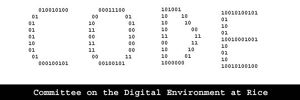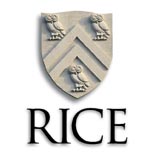
Sources on Emerging Technology
Web Directories | Online Periodicals |Benchmarking |
Organizations | Research
Centers | Corporations
About.com collects limited information about emerging technologies in a
few places:
Galaxy collects a number of links (some relevant,
some broken, some irrelevant) about everything from adaptive systems to
visualization.
Online Periodicals
CIO claims
to be "the leading resource for information executives." Along with
articles about current topics such as knowledge management, wireless,
e-business strategies, etc, CIO offers "research centers" (aka, a
collection of links) about topics such as globalization, IS staffing,
infrastructure, etc. It also features a regular column on "emerging
technology," such as video-on-demand, XML servers, 3-D technology, and the
like.
Edupage, which is sponsored by EDUCAUSE, provides
brief emails summarizing general developments in IT three times a
week. Information Impacts considers the political and
social implications of information technology. Its summer 2000 issue is
"IT and Education: Anytime? Anywhere?".
Information Week focuses on "business innovation
powered by IT," taking a management perspective on developments in
technology. It also offers resource centers on innovations in wireless
communications, application development, management strategies,
benchmarking IT, and the like. The Pfeiffer Report on Emerging Trends and Technologies
focuses on transformations in the digital content industry. Recent issues have examined WAP (Wireless Application Protocol), XML, broadband content delivery, and e-books. The online magazine Planet IT includes "Executive Strategies," a section focused on problems
and opportunities faced by CIOs. Although E-Commerce is the major theme,
"Executive Strategies" also reports on higher education, such as its July
18, 2000 article on "Automating Education."
The
Technology Source looks at technology from the perspective of
educators and managers of educational institutions.
TechLearn Trends, authored by educational technology
consultant Elliott Masie, issues news briefs about just-released reports on
technology, innovations presented at recent conferences, new grants in
educational technology, and so forth.
University Business features articles on such
topics as "Going Digital" and the future of libraries. It also makes
available the 2000 Directory Of Consultants For Higher Education.
ZD Net:
Wide-ranging techie publication, with reports on breaking news in
computing, reviews of new projects, information for developers, etc.
(http://www.zdnet.com/)
Benchmarking
Standard
Performance and Evaluation Corporation (spec)
aims to "establish, maintain, and endorse a standardized set of relevant
benchmarks and metrics for performance evaluation of modern computer
systems." Looks like very useful information, but not exactly transparent
to non-specialists. The Benchmark Gateway collects different
benchmarking standards and results. CP Systems "is an interactive industry information
tool that uses standard browser technology and allows users to
access and manipulate a database of all major computer systems
products, with comprehensive details of their specifications,
pricing and performance. Access to the database is available only
to subscribers using a special URL and can be licenced for as
short a term as 1 month to allow potential systems purchasers, for
example, time to shortlist and analyse systems prior to issuing a
selective tender."
Google Web Directory: Benchmarks
Organizations
The ACM
(Association for Computing Machinery) offers a searchable database
(aka "digital library") of all ACM publications.
The Common Solutions Group
(CSG) "is a set of leading universities and mid-level networks
working together to create a common infrastructure and toolset required
for the future of our institutions. Where feasible, these common solutions
are provided by commercial providers under con tract to the CSG
universities. Where commercial solutions are infeasible, highly talented
individuals from participating CSG universities are commissioned to
provide them." Current projects include authentication/security,
collaboration tools, digital libraries, Internet2 applications, and so
forth (unfortunately, no further information is offered about these
projects). CREN (Corporation
for Research and Educational Networking) bills itself as providing
"non-profit, member-based IT support for research and educational
institutions." It offers a useful series of "tech talks"; recent topics
include collaborative learning environments, calendaring systems,
e-commerce on campus, campus portals, analyzing IT costs, networked
digital video, the digital millennium copyright act, and more. (You can
either read the transcript or listen to the audio; background papers are
also offered.) The CREN site also features a useful Core Technology Glossary. -
DIRECT
(Development of an Interdisciplinary Round Table for Emerging
Computer Technologies) brings together major research and data centers to
discuss trends in scientific computing.
George Mason University has
established
an Emerging
Technologies group "to investigate new networking and information
technologies for potential use at the University." This group,
part of the Network and Emerging Technologies organization in University
Computing and Information Systems (UCIS), is currently focusing on DSL, thin
clinets, IP multicasting, and assistive technology for teleworking.
UCIS has also targeted several emerging technology projects, including
web-based distance learning, enterprise document management, student lab
access by terminal emulation, and multipoint videoconferencing bridge.
UCIS does a good job informing the university community of new technologies such as DSL and thin clients. The University of Wisconsin's Office of Learning and Information Technology has
appointed Judy
Brown to be its Emerging Technology Analyst. Brown "conducts research
and consults on new computer directions and related technologies for all
campuses in the 15 institution UW System, focuses on partnerships for
improving learning with corporate, government and educational institutions
at The Pyle Center in Madison, WI, is actively involved in the Academic
Advanced Distributed Learning (ADL) Co-Lab partnership with the Department
of Defense, and represents UWSA on instructional technology initiatives
including Elliott Masie's TechLearn Collaborative."
The IEEE (Institute of Electrical and Electronics Engineers)
"digital library" offers online access to conference proceedings,
journals such as Internet Computing, IT
Professional, etc. At the Internet2 site, you can learn about applications
under development at universities, middleware, networking capabilities,
and other initiatives. Private technology research firms include
Cahners
In-Stat Group, Technology Evaluation.com (which provides free
information about groupware, hardware, data warehousing, etc.), Forrester Research ,
Giga Information
Group, Gartner Group
, IDC, and Jupiter. These
firms tend to focus on e-commerce. The Office of
Information Technology IT Policy on-Ramp is a rather jumbled
site, but it does provide some information about important
issues for IT professionals (performance assessment, best practices, etc).
National Academies: Computers and Technology offers
links to recent publications and reports on technology.
Society for College and University
Planning has recently published a book entitled
Technology-Driven Planning as well as the latest issue of the
journal Planning for Higher
Education (http://www.scup.org/).
Research Centers
Perhaps the best place to go to peek at what's ahead is the leading
labs and technology centers, such as
Corporations
It's worth keeping an eye on what corporations are up to in higher education. See, for instance,
Home URL: <
http://www.rice.edu/projects/code
>
Copyright © 2000 by CODE.
Last updated September 26, 2000 by Lisa
Spiro for CODE (Committee on the Digital Environment at Rice
University).
|

